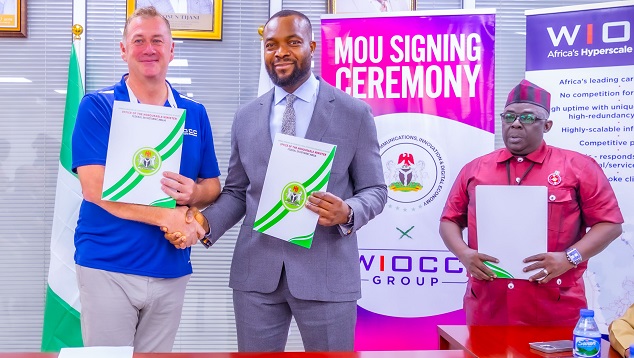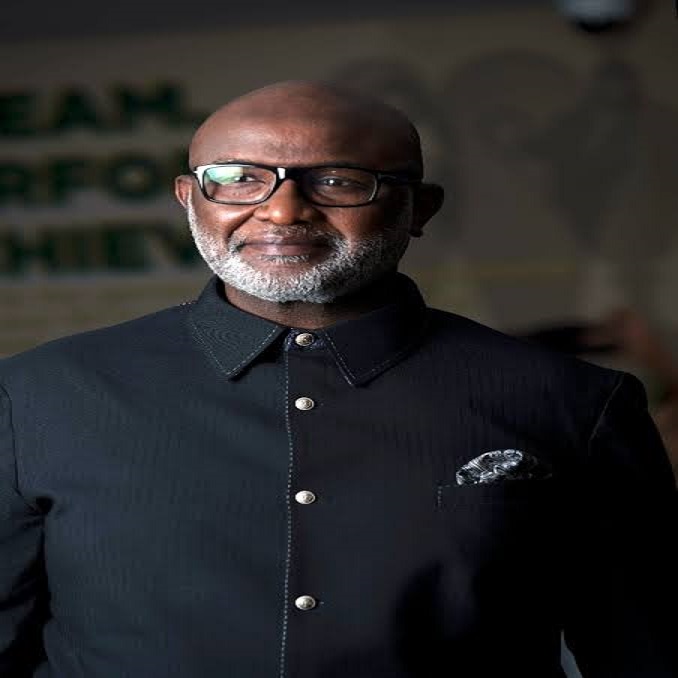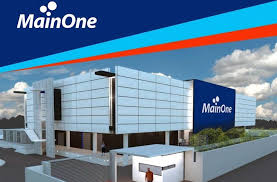Telecom
How Telecom Fared in the Out Going Year
Nigeria telecommunications sector in the out going year was felt with mixed given. The sector which has been adjudged the fastest growing in Africa, witnessed low level of activities compared to previous years as it grasp with the effect of global economic meltdown, which led to reduction in the revenue accruing to operators.
The year began with operators seeking a palliative measure in the face of global economic meltdown which forced equipment vendors downsizing as well as withdrawing credit facilities to operators. Telecom operators led by Bayo Ligali, then chief executive officer, Zain Nigeria, said that the sector does not need financial bail out as was the case in United State of America and some European countries, and that they are requesting for tax waivers as a way of cushioning the effect of economic meltdown.
This request was not granted as government through Dr. Ernest Ndukwe, executive vice chairman Nigerian Communications Commission (NCC), explained that the effect of the global economic meltdown will not adversely affect the industry. He added that the industry is doing well and is not likely to be affected by the global crisis as it has the potential to act as a catalyst to other sectors for future economic recovery.
He pointed out that banks still want to do business with telcos because they remain the cash-cow of the economy, stressing that although people may not want to spend more money in other areas, ‘they still will make calls for business and social reasons.”
He anticipated that the sector would advance on its records by improving on broadband penetration, thereby accelerating the social and economic development in the modern world.
However, this did not happen as average revenue per user (ARPU) dropped drastically leading to operators adopting different internal strategy to reduce cost. Among such strategies is reduction in the budget for advert campaigns and downsizing. The situation, was compounded when Central Bank of Nigeria started the recent reform in the banking sector aimed at sanitizing the system, this resulted in banks’ refusal to grant loans to businesses including telecommunications operators while pressurizing those who were given loans to start repaying such loans.
More so, the government in this outgoing year realized the importance of ICT as a viable platform to transform the country’s economy into knowledge based economy. The telecom sector along with increased competition among players have brought substantial benefits to consumers in terms of lower subscription rates and enhanced choice. According to bharatbook research, ‘the country has a huge potential to boost its mobile market given the fact that penetration rate was just around 43% at the end of 2008. With rapidly improving mobile infrastructure and intense competition among mobile operators, the number of mobile subscribers will grow at a CAGR of around 15.5% between 2010 and 2012 and the penetration rate will exceed 75% (by 2012 end)’. In line with the escalating education and business in the country, it noted that the demand for Internet services will soar as businesses need new mediums to get exposure on the global map. Supported by forward-looking government programs, Nigeria is all set to become one of the leading Internet markets in Africa in terms of users, international bandwidth and services offered. The research report projects that the number of Internet users will grow at a CAGR of over 25% during forecast period.
Licensing of 2.3 GHz spectrum band
The licensing process of 2.3 Ghz spectrum band which was expected to boost telecommunications sector in 2009 turn out to frustrate the growth. Nigerian Communications Commission advertised for bidders to the spectrum it got from National Broadcasting Commission (NBC) that was aimed at boosting broadband service delivery. By the end of the bidding time 46 companies applied for the license out of which Mobitel, Spectranet and Multi-Links emerged as winners.
The 2.3GHz licensing round, concluded on May 8, had raised a lot of dust and led to a deluge of petitions to the Presidency with several complaints of a flawed process in the conduct of the exercise. This resulted to Prof. Dora Akunyili, Minister of Information and Communications, directing the cancellation of the exercise and for a fresh and transparent one to be conducted, while money already collected to the tune of N4.104 billion be refunded to the announced winners and for the whole process re-advertised.
One of the grouse of the petitioners is that the NCC only effectively gave the companies that indicated interest in the licence just a week (or five working days) within which to raise N1.3 billion to pay for the licence.
One of the petitions alleged that in the period of economic meltdown, five working days were not enough to raise the amount required before the deadline.
The NCC adverts were published Thursday, April 30, while May 1 was a public holiday and 2-3 fell on a weekend, leaving the firms just five working days to raise the fees.
It was also alleged that the exercise lacked transparency as the NCC was accused of adopting first-hand information approach with some companies said to have been favoured over others because they had prior information even before the commission placed the adverts in the papers with a week’s deadline given for payment.
After several efforts made by stakeholders in the telecommunications industry aimed at resolving the issue failed as none of the parties were ready to shift ground that the issue was taken to the president, who ordered the Nigerian Communications Commission to start fresh licensing for the spectrum band, declaring the previous contest void. An official statement by Olusegun Adeniyi presidential spokesman said: ‘having carefully reviewed official reports and representations from stakeholders, and after availing himself of competent advice on the recent licensing of the 2.3GHz spectrum band, President Umaru Musa Yar’Adua has come to the conclusion that the letters and spirit of the stipulated rules and guidelines were not adequately complied with.’
Undersea Cable Initiative
The outgoing 2009 will ever be remember in many years to come as it witness the landing of the first single company initiated submarine cable, Glo 1 in Lagos. The 9,800 km cable stretching from the UK across all the West African countries was anchored to its landing station in Nigeria at Alpha beach in Lagos.
The trend in the global telecommunication industry is for a consortium of companies to build submarine cables as was the case with the SAT submarine 3 cable which was built by a consortium of 36 countries.
The project jointly executed by Globacom and its partners, Alcatel Lucent is expected to give Nigeria lead in telemedicine, eCommerce and egovernance among other practices that transform economies.
Jameel Mohammed, the group chief operating officer of Globacom Limited, said Glo 1 would deliver transmission capacity that would radically change Nigeria and West Africa’s economic landscape by linking 17 countries to the rest of the world.
Jameel said the landing of Glo-1 was another milestone in the history of Nigeria’s communications industry, adding that the cable would provide unprecedented high speed Internet services and make telecom services much faster, more reliable and cheaper for consumers.
The Globacom GCOO said implementing submarine cable projects, particularly the one spanning about 10,000 km from London to Lagos, is an initiative that usually takes between two to two and a half years to complete.
He said because the cable passed through various territorial waters and jurisdictions of several African countries, Globacom had to contend with lengthy approval processes.
He said Glo-1’s current and upgradeable capacity is enough to provide whatever broadband capacity Nigerians require for the next 15 to 20 years at the minimum projections.
The telecoms giant had factored Nigeria’s long term bandwidth requirements into the equation, he said, adding that Glo 1 can carry voice traffic of all operators internationally.
Mr. Adewale Shangowawa, Globacom’s executive director, Human Resources, noted that with the landing of the Glo1 submarine cable, Globacom has scored another first and as well has taken a bold step to give Nigeria the lead in the magical broadband revolution in Africa.
The cable which is of the 32 STM 64 type has virtual infinite capacity and therefore offers sufficient capacity for traffic for the Globacom’s mobile, fixed, and internet telecommunication services.
This will translate into much faster and more robust connectivity for voice, data and video. The cable will connect 14 West African countries through the branching units to the rest of the world. It will boost economic activities in the region, create job opportunities and serve companies in Europe and Africa.
The year also witnessed the completion of survey work on the route where the first private sector led and funded international telecommunications highway project between West Africa and the rest of the world, known as the MainOne Submarine cable will be laid.
The main route survey operation followed the completion of the 27 kilometres in-shore survey operation, near Portugal. The in-shore survey which commenced in January ahead of schedule was completed successfully in February. "Kommandor Jack" the MainOne cable survey vessel started mobilization in Lisbon, Porugal on Wednesday March 25 and arrive Nigeria in October.
Mrs. Funke Opeke, chief executive officer, MainStreet Technologies, owners of MainOne cable, said the submarine cable project will further reduce the cost of telecom services in the country by between 10 to 20 percent of what is currently paid for such services. The project, according to her, will provide unlimited transmission capacity at improved rate and reduced prices, such that it will enhance speed of Internet browsing. The technology, she explained, will help telecom operating companies who connects to the submarine cable, to have enough transmission capacity to offer services and still sell to smaller operators, if they so desire.
The Main One project will also ease the difficulties of switching traffic between African countries, eliminating the inconvenience and added costs of fist routing traffic to Europe. The first phase will span 7,000 kilometres and is billed for completion in June 2010.
Telecom
NLC Announces Nationwide Boycott over Telecom Hike

Nigeria Labour Congress (NLC), an umbrella group for trade unions, has announced that Nigerians are planning a statewide boycott of telecom services in protest of the Nigerian Communications Commission’s (NCC) recent approval of a 50% increase in phone costs.

Following carriers’ demands for cost-reflective charges amid challenging economic conditions, the NCC approved a 50% increase in telephone tariffs on Monday.
This hike, which fell short of the 100 percent increase that telcos requested, caused the average cost of calls to go from N11 to N16.5 per minute, the cost of 1GB of data to go from N287.5/GB to N431.25, and the price of SMS to go from N4 to N6.
“The adjustment, capped at a maximum of 50 percent of current tariffs, though lower than the over 100 percent requested by some network operators, was arrived at taking into account ongoing industry reforms that will positively influence sustainability,” the commission said.
In a statement issued , Joe Ajaero, president, NLC, denounced the tariff increase, calling it an unfair burden on those who are already facing financial difficulties.
He voiced concerns about the hike’s timing, pointing out that it comes while inflation and purchasing power are on the rise.
He said, “This decision, coming at a time when Nigerian workers and the masses are grappling with unprecedented economic hardship, is a clear assault on their welfare and an abandonment of the people to corporate fat cats.
“Telecommunication services are essential for daily communication, work, and access to information. Yet, an average Nigerian worker already spends approximately 10 percent of their wages on telecom charges.
“For a worker earning the current minimum wage of N70,000, this means an increase from N7,000 to a staggering N10,500 per month, or 15 percent of his salary—an unsustainable cost.
“NLC is not opposed to a tariff review but disagrees with the approved rate of increase. We therefore call on the government, the NCC, and the National Assembly to stop the implementation of this ill-advised hike to allow a reasonable conversation around it.
“If the dialogue agrees on the need for the hike, then we can all seek a more humane increase and definitely not this 50 percent hike,” he stated.
The NCC added that rate adjustments were made to close the gap between current tariffs and growing operating costs without compromising service delivery to customers.
Telcos had complained that a 300 percent increase in operational costs was forcing them to shut down.
Telecom
FG, WIOCC Sign $10M MoU to Connect 3 million Homes with Broadband Fibre Connectivity

WIOCC Group, a provider of digital infrastructure and connectivity solutions, is pleased to announce a strategic partnership with the Federal Ministry of Communications Innovation & Digital Economy (FMCIDE) of Nigeria.

This collaboration aims to accelerate the development of Nigeria’s digital economy through substantial investments in critical digital infrastructure and comprehensive stakeholder engagement.
The partnership, formalized through a Memorandum of Understanding (MoU), marks a significant milestone in the efforts to enhance digital connectivity and inclusion across Nigeria. Represented by the Honourable Minister, Dr. ‘Bosun Tijani, and WIOCC Group’s Chief Development Officer, Mr. Darren Bedford, the agreement outlines a shared vision for fostering technical efficiency and collective prosperity.
The partnership focuses on enhancing stakeholder engagement by jointly reviewing and improving the National Policy on Telecommunications to meet digital economy needs. WIOCC Group commits to investing in Nigeria’s digital infrastructure, deploying a hyperscale open-access digital platform for internet service providers (ISPs) with advanced fibre and colocation facilities.
Additionally, through this partnership, the collaboration with the Nigerian Broadband Alliance for Nigeria aims to improve broadband quality and accessibility, with WIOCC expanding fibre infrastructure and partnering with ISPs to connect more homes and businesses. The partnership also includes WIOCC providing digital infrastructure training and supporting job creation for Nigerian youth.
Commenting on the partnership, WIOCC Group’s Chief Business Development Officer, Mr. Darren Bedford said, “The MoU with the Ministry of Communications underscores our commitment to supporting Nigeria’s digital transformation, by working together, we aim to create a robust digital ecosystem that benefits all stakeholders and drives sustainable economic growth”.
Dr ‘Bosun Tijani stated that “This collaboration with WIOCC Group represents a significant step forward in our commitment to ensuring that Nigerians have access to reliable and high-quality telecommunications services. We are committed to building a resilient digital infrastructure that fosters innovation, inclusion, and economic growth.
“Working with the private sector to deliver last-mile connectivity to homes and businesses, amongst other key benefits, is essential to achieving this vision, and we are excited about the opportunities this collaboration creates for empowering communities across Nigeria”.
Telecom
QNET Champions Education Accessibility with QLearn on International Day of Education 2025

QNET, a global leader in lifestyle and wellness-focused direct selling, celebrates the UNESCO International Day of Education 2025 by advancing educational access for learners of all ages through its innovative e-learning platform, QLearn.

This year’s theme, “AI and Education: Preserving Human Agency in an Automated World,” highlights the critical role of education in empowering individuals to thrive in an AI-driven future.
According to the World Economic Forum’s Future of Jobs Report 2025, technological advancements and the green economy are projected to create a net gain of 78 million jobs globally by 2030.
However, the report also emphasizes the need for education reform and reskilling to address the skills gap generated by AI advancements and to prepare individuals for an evolving, automated job market.
In response to these global shifts, QNET’s QLearn platform offers accessible, high-quality e-learning solutions, covering everything from professional development to K-12 education.
These courses are designed to help individuals acquire the knowledge and skills necessary to excel in a rapidly changing world
Biram Fall, QNET’s Regional General Manager for Sub-Saharan Africa, shared his thoughts on the International Day of Education: “In today’s fast-evolving technological landscape, education is more important than ever.
“As AI reshapes industries, fostering adaptability through innovative learning is crucial. Through QLearn, QNET is committed to providing quality education and empowering individuals to shape their futures.”
Beyond QLearn, QNET is actively engaged in global educational initiatives, such as FinGreen, its financial literacy program, and strategic partnerships with organizations like the Lagos Food Bank Initiative (LFBI) in Nigeria.
Together with the LFBI, QNET has provided nutritious meals to over 1,000 underserved students under the EDUFOOD program, helping reduce absenteeism and improve academic performance.
QNET continues to play a significant role in global efforts to position education as a pillar of sustainability and equity.
By leveraging digital tools and the transformative potential of AI, QNET is working to bridge educational gaps and empower communities to thrive.

 Telecom12 hours ago
Telecom12 hours agoSamsung Galaxy S25 Series: Redefining Smartphones with Advanced AI Integration

 Telecom12 hours ago
Telecom12 hours agoMTN’s New Year Campaign: Inspiring Change, One Move at a Time

 General News17 hours ago
General News17 hours agoFG Plans Aircraft Manufacturing in Nigeria

 General News12 hours ago
General News12 hours agoCBN’s FX Code to Boost Transparency for Launch on January 28

 Telecom17 hours ago
Telecom17 hours agoFCCPC Insists Telcos’s Tariff Hike must Translate to Improved Services

 Telecom12 hours ago
Telecom12 hours agoMainOne Boosts Connectivity for West African Businesses with Equiano Cable

 Telecom12 hours ago
Telecom12 hours agoFG, WIOCC Sign $10M MoU to Connect 3 million Homes with Broadband Fibre Connectivity

 Telecom11 hours ago
Telecom11 hours agoNLC Announces Nationwide Boycott over Telecom Hike













